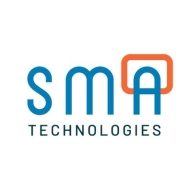


OpCon and Rocket Zena are job scheduling software products. OpCon excels in support and cost efficiency, while Rocket Zena impresses with its robust feature set despite higher pricing.
Features: OpCon automates processes and integrates seamlessly across platforms, offering an intuitive interface and reliable operational control. Rocket Zena provides extensive customization through highly customizable workflows, scalability, and a strong integration framework that enhances complex automation tasks.
Room for Improvement: OpCon could improve in offering more advanced customization tools, deeper analytical capabilities, and a more comprehensive training program. Rocket Zena could enhance cost efficiency, streamline the complexity of its interface, and improve initial deployment times.
Ease of Deployment and Customer Service: OpCon supports quick implementation with a straightforward deployment model and responsive customer service. Rocket Zena offers flexible deployment options and comprehensive support, appealing to those seeking tailored and adaptable solutions.
Pricing and ROI: OpCon presents a more budget-friendly setup with consistent ROI, making it attractive to cost-conscious organizations. Rocket Zena, although requiring a higher initial investment, provides significant long-term ROI due to its extensive features and capabilities.
| Product | Market Share (%) |
|---|---|
| JAMS | 2.8% |
| OpCon | 1.8% |
| Rocket Zena | 2.5% |
| Other | 92.9% |


| Company Size | Count |
|---|---|
| Small Business | 11 |
| Midsize Enterprise | 8 |
| Large Enterprise | 18 |
| Company Size | Count |
|---|---|
| Small Business | 16 |
| Midsize Enterprise | 29 |
| Large Enterprise | 19 |
| Company Size | Count |
|---|---|
| Small Business | 3 |
| Large Enterprise | 6 |
JAMS is an automation and job scheduling solution designed for workflow optimization, catering to businesses large and small with flexible licensing and integration options.
Offering both Core and Advanced packages, JAMS supports a range of environments from small teams to large-scale operations. Its standout features include integration with platforms like PowerShell, SQL, and SAP, coupled with capabilities such as dependency management and natural language scheduling. JAMS simplifies job management, centralizes workflows, and boosts productivity with its robust automation features. Customizable workflows and insightful logging make it adaptable for diverse needs, supported by responsive customer service ensuring seamless operations.
What are JAMS's key features?In industries, JAMS is employed for automating workflows and managing batch jobs. Organizations utilize it for SSIS, SQL Server tasks, file transfers, and integrating with vendor systems, achieving efficient file automation and data management. Scheduler enables precise execution of thousands of tasks daily, enhancing operational efficiency.
OpCon enhances automation with features like auto-scheduling and Corelation KeyStone integration, empowering users with self-service capabilities. Its intuitive interface and flexibility boost productivity, providing reliable automation and efficient file transfers.
OpCon is a powerful automation platform known for streamlining operations through features like auto-scheduling and robust integration capabilities. It facilitates seamless automation, allowing users to execute tasks without direct environment access and simplifies job dependencies. Users benefit from self-service capabilities, which enable easy task execution by non-IT staff, reducing errors and human intervention. With its modern interface, OpCon supports efficient file transfers and integrates effectively with multiple systems, enhancing productivity. While offering significant scalability, OpCon users suggest improvements in web functionality, script-writing, and graphical displays, along with enhancements in user authorization and notification systems. There is also a need for better template management, clearer logging, improved mobile accessibility, and expanded training resources.
What are OpCon's Key Features?OpCon is widely used in industries like financial services, where automation and scheduling tasks are critical. Financial institutions rely on OpCon for core processing tasks, including reporting, automated workflows, and vendor file exchanges. The platform handles high volumes of jobs across platforms, ensuring efficient operations and reducing reliance on manual processes.
Rocket Zena offers scheduling and dependency mapping, intuitive interface, and containerized deployment. It simplifies workflow automation, enhancing efficiency across platforms.
Rocket Zena's strengths lie in its scheduling capabilities, graphical interface, and efficient deployment. It supports users in task management with cross-platform scheduling, streamlining repetitive tasks through automation. The web-based client facilitates process visualization and workflow management, while the notification system enhances task handling. Users can manage mainframe, Linux, and Windows environments while integrating with SAP and Oracle, ensuring comprehensive automation and efficient job execution.
What are the key features of Rocket Zena?In industries like finance and manufacturing, Rocket Zena plays a vital role in scheduling batch jobs and automating file transfers. It helps adapt task scheduling to business calendars and integrate with existing platforms, ensuring a smooth workflow that meets business objectives.
We monitor all Workload Automation reviews to prevent fraudulent reviews and keep review quality high. We do not post reviews by company employees or direct competitors. We validate each review for authenticity via cross-reference with LinkedIn, and personal follow-up with the reviewer when necessary.